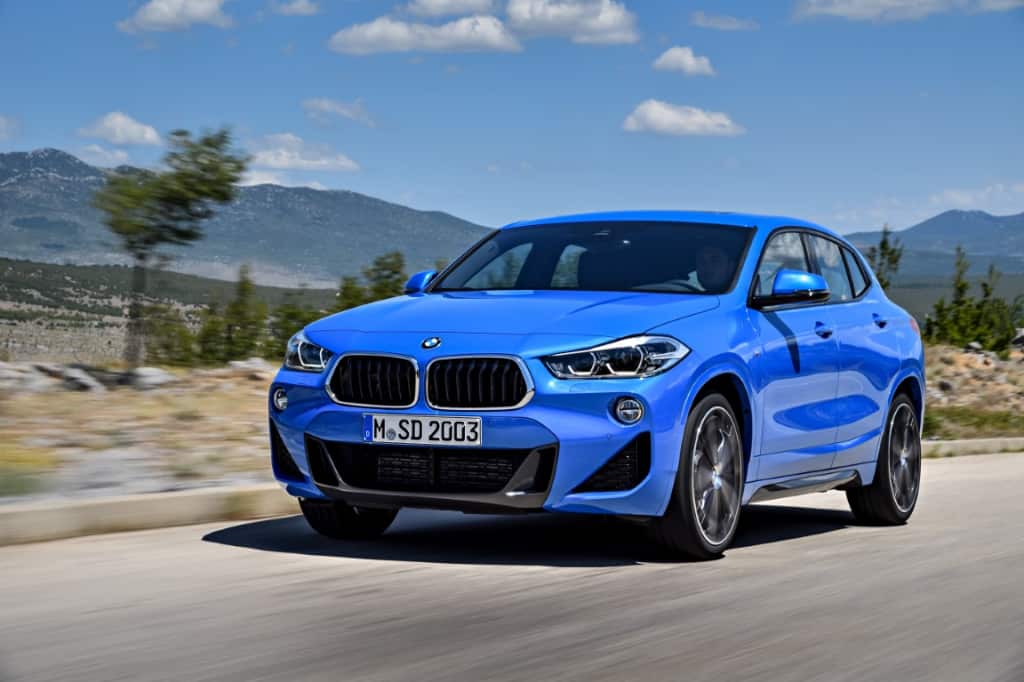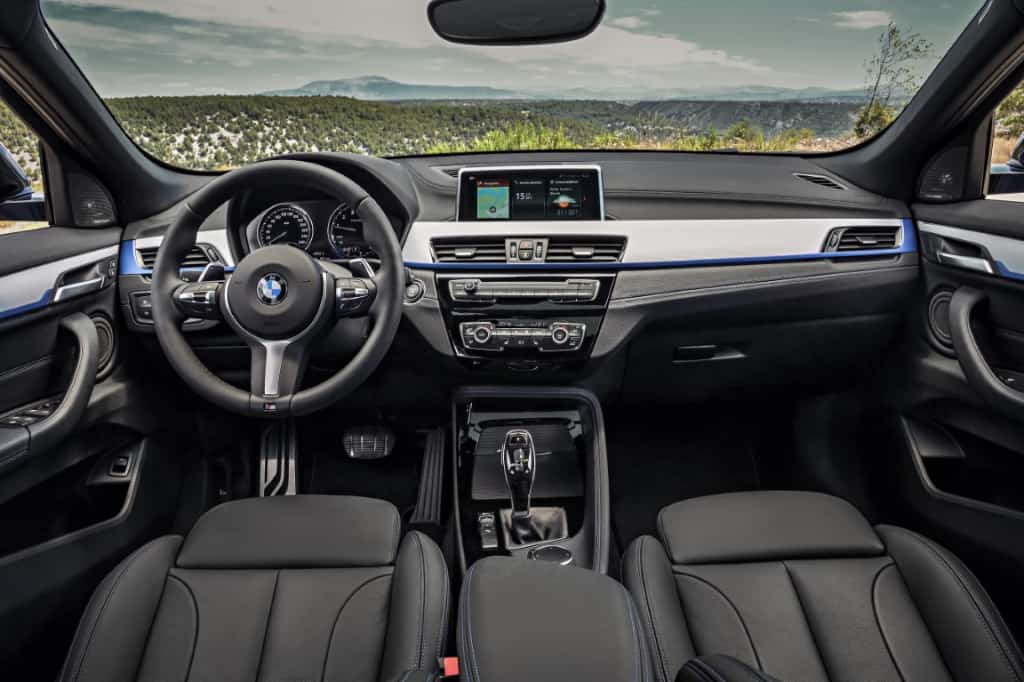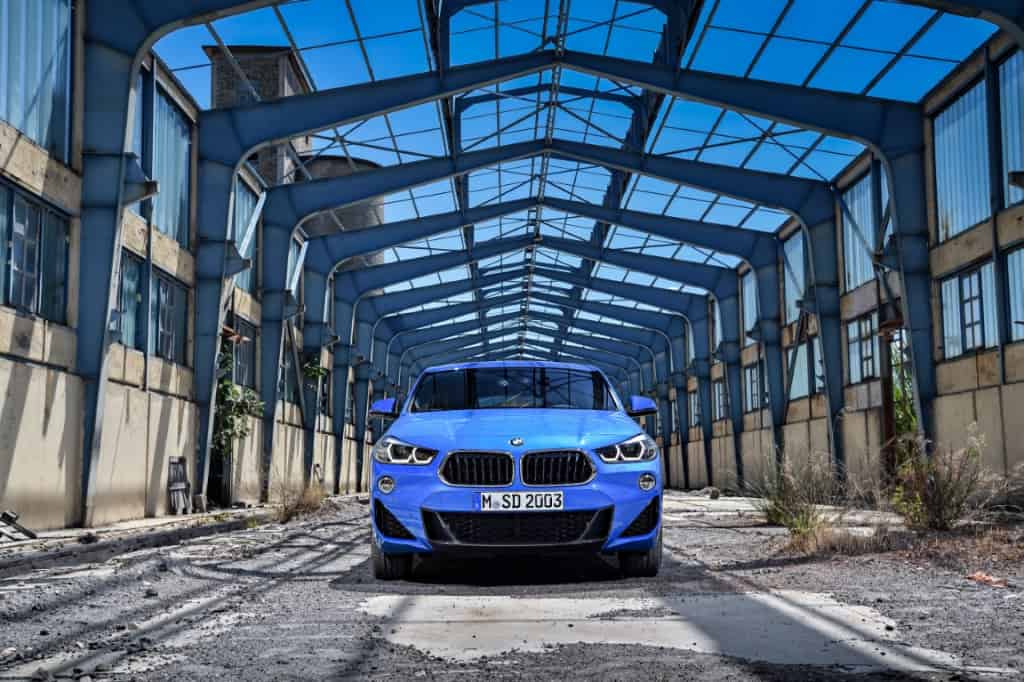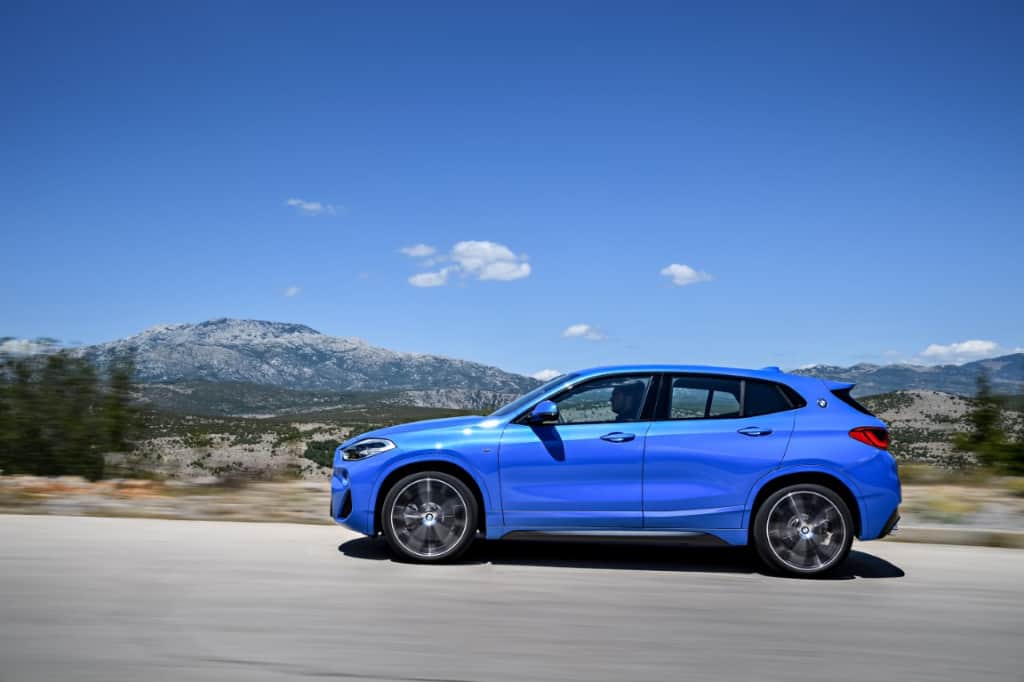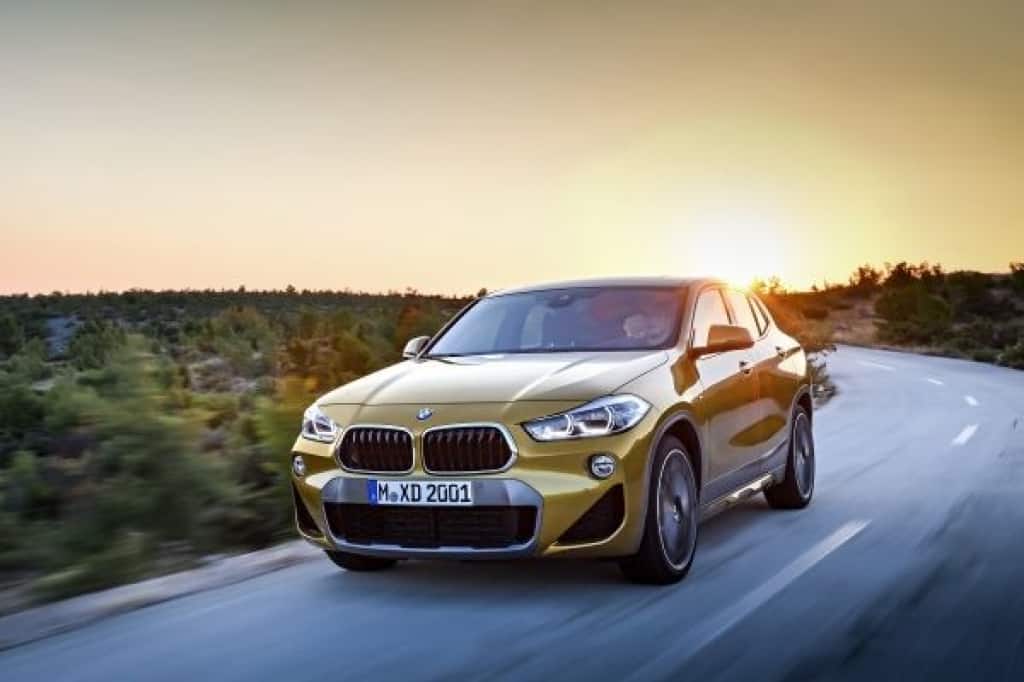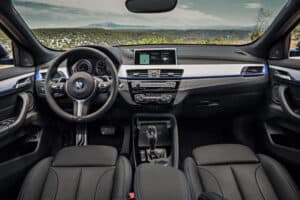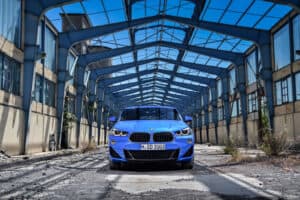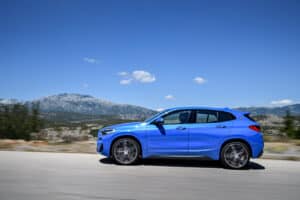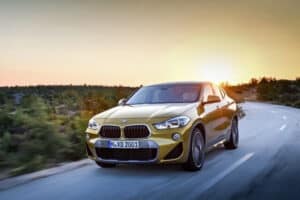Tell me more…
Despite the X2’s name and its price logically slotting between the X1 and X3, it’s actually smaller than either at 4630mm long. BMW calls it a Sports Activity Coupe, and it does take a more youthful design direction than the comparatively conservative X1 and X3 – chunky SUV details including squared-off wheel arches and body cladding combine with a more rakish, almost coupe-like roofline. It’s a more car-like proposition than the Evoque, which stands a significant 12cm taller.
Three trim levels are available:
- Basic has 17in alloys, cloth seats and black cladding for the lower body
- M Sport has 19in alloys, leather trim and body-colour cladding
- M Sport X has 19in alloys, cloth/Alcantara seats and Frozen Grey cladding
What’s it like inside?
The X2 is only slightly cheaper than the latest 3-series, but you wouldn’t guess when you climb in the cabin. There are analogue dials, the older (if still very good) iDrive infotainment system, a bulkier, less attractive look to the dashboard and there’s a lower quality look and feel to the leather upholstery. It’s not poor quality, but everything looks and is a generation out of date.
On the plus side, the seats are comfortable and the slightly raised seating position provides a good view of the road ahead, and even larger adults have enough space in the second row – including head room, which is a nice bonus given the rakish roof. Despite being 30cm shorter than a 3-series and easier to slot into a parking space, the X2’s 470-litre boot is just 10 litres less generous than its saloon sibling’s. So it’s definitely quite a practical proposition for a comparatively small car.
How does the X2 drive?
It’s a mixed bag. Our M Sport-spec test car was fitted with optional 20-inch alloy wheels (the largest available, with 19s the smallest for M Sport models, or 17s on entry-level models) and also the standard firmer, lower suspension set-up. There was certainly pronounced road noise from the wide rubber and a lumpy ride quality.
Being taller and heavier than a 3-series, the X2 is also a less dynamic drive, with more body roll in particular, though the steering is quick and responsive, and the xDrive all-wheel drive manages to combine high levels of grip with BMW’s trademark rear-biased feel under more spirited driving. Think sure-footed and competent rather than particularly exciting, and that’s probably enough for most buyers.
The 2.0-litre turbodiesel is a good engine, with strong mid-range performance for easy overtaking and a relaxed, unstressed feel, and it’s complemented by a smooth, fast-shifting eight-speed automatic gearbox that you can control via steering-wheel-mounted paddleshifts. It’s not a particularly sweet-sounding engine, which at times becomes quite grumbly and harsh, but that’s far from unusual for a four-cylinder turbodiesel unit.
In a nutshell
The X2 is not a disappointing car by any means, but it does find itself caught between two stools: on the one hand a direct rival like the new Range Rover Evoque represents a more stylish alternative, both inside and out; on the other, a BMW 3-series is better to drive, more spacious and costs barely any extra. We’d pick either before plumping for the X2.
Search and finance your next used BMW X2 with ChooseMyCar, or view the entire BMW range.
Similar Car Reviews
The obvious choices when looking at SUV’s would be the Land Rover or Range Rover. The Land Rover Discovery Sport (despite its name) isn’t very sporty but is a comfortable and versatile family SUV. Then the more luxurious Range Rover Velar which is the non-identical twin sister to the Jaguar F-Pace SVR.
If the price isn’t a problem, you should look no further than the Audi SQ5, brand new from around £55k, you can pick up the 2018 model for around the £42k mark.
Alternatively, and not quite part of the SUV family, the Volvo V60 estate is spacious, has smart interiors and fantastic seats, as well as it’s city safety autonomous braking as standard, it’s a serious choice for any family car.
Specs
| Price | £38,150 |
|---|---|
| Drivetrain | 1995cc 16v four-cylinder turbodiesel, eight-speed auto, all-wheel drive |
| Performance | 187bhp @ 4000rpm |
| 0-62mph | 7.7sec |
| Top Speed | 137mph |
| Efficiency | 45.6-48.7mpg, 124g/km CO2 |
| Weight | 1675kg |
| Length/width/height | 4360/1824/1526mm |





